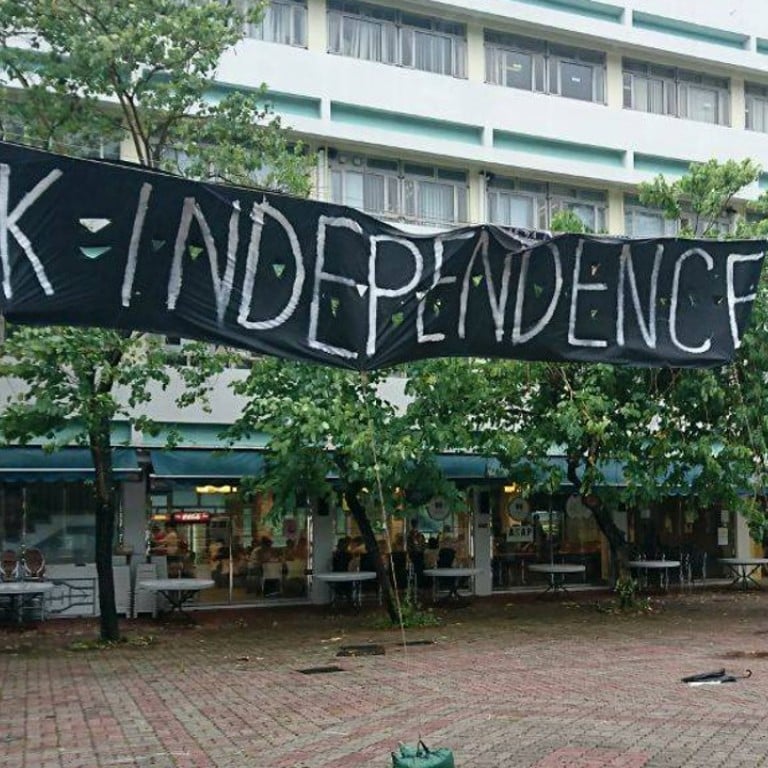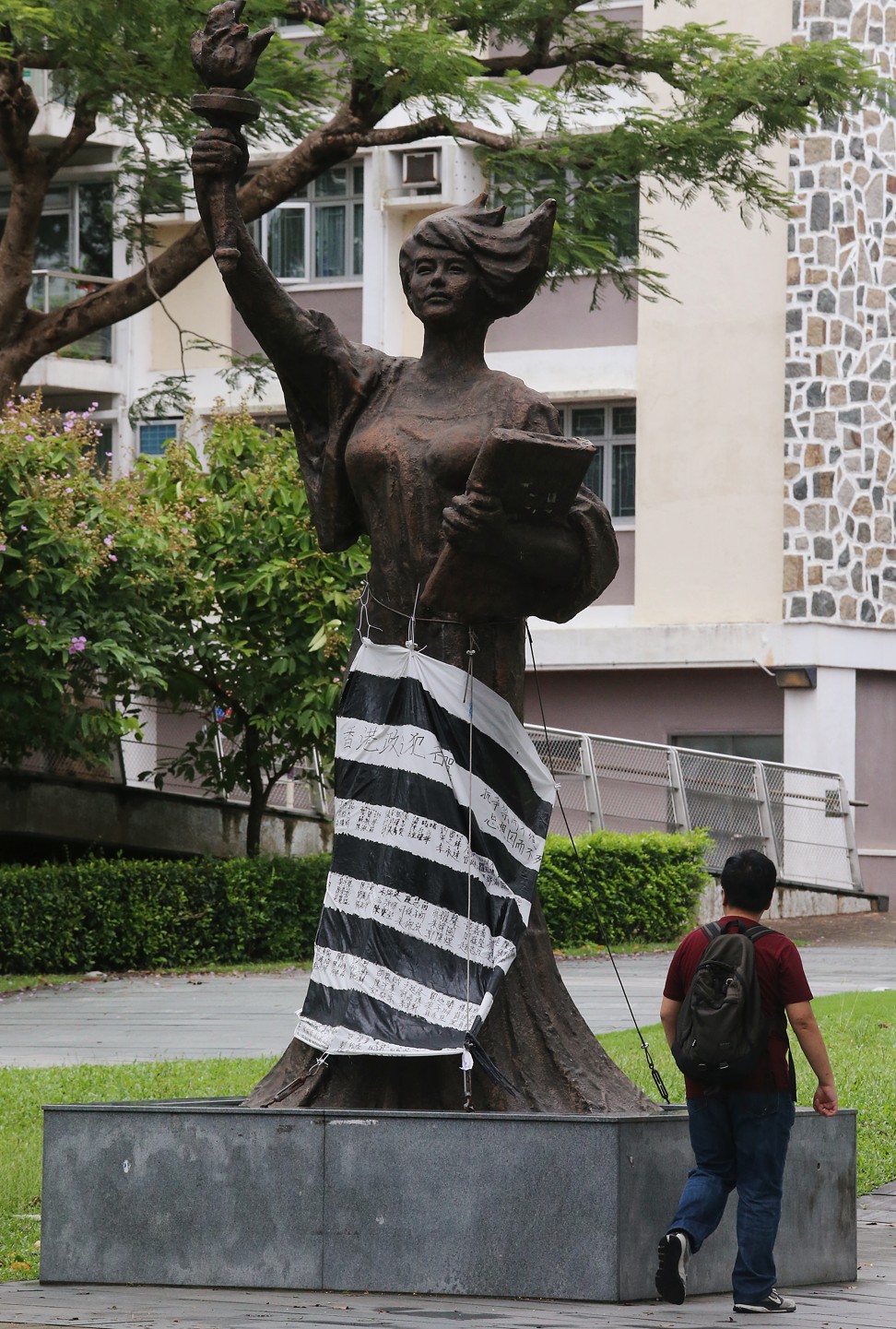
Independence banners fly on Hong Kong campus on first day of academic year
Signs marked the most overt form of defiance just two months after President Xi Jinping warned Hong Kong not to cross the “red line” of undermining Chinese sovereignty
The controversial issue of Hong Kong independence made a high-profile comeback on Monday despite Beijing’s stern warnings in recent months, as banners advocating it surfaced on the Chinese University campus overnight.
Designed for maximum impact as Monday was the start of the new academic year, the signs marked the most overt form of defiance just two months after President Xi Jinping warned Hong Kong not to cross the “red line” of undermining Chinese sovereignty.
Xi Jinping sends warning to advocates of Hong Kong independence but offers pan-democrats hope of better relations
No individual or group claimed responsibility. University staff later removed the pro-independence banners and a string of posters, prompting accusations from the students’ union of censorship and a curb on free discussion of the subject.
On the same day the banners went up, the union had put up a black and white striped banner featuring a list of “Hong Kong political prisoners” to voice support for 16 activists who were jailed for their involvement in two protests.

Three weeks ago, the city’s appeal court ruled in favour of the government’s bid to throw them behind bars, including student leader Joshua Wong Chi-fung who co-led the Occupy movement in 2014.
While a Chinese University spokesman said it was the school’s long-standing position that it was “absolutely not in favour of Hong Kong independence”, vice chancellor Professor Joseph Sung Jao-yiu struck a more conciliatory tone as he said students were free to express their opinions as long as they did not break the law.
But the removal of such banners would not stop their reappearance elsewhere, warned political observers who believed such gestures were meant to embarrass Beijing and would resurface now and again as an expression of frustration over the lack of political reform.
Yet others said such extreme signalling would be seen as crossing the “red line” set by Beijing, with unknown repercussions.
Hong Kong independence ‘never going to happen’: former governors tell city’s youth to focus on democracy
As students filed into the university’s Sha Tin campus on Monday, they were greeted by at least three large black banners bearing the words “Hong Kong independence” in Chinese and English, including one near a campus landmark and sculpture known as “The Beacon”, outside the library.
Sung reiterated the institution was “a place with freedom of speech”.
“As long as it is not illegal or disruptive to other people’s learning, we will not have too big of a reaction,” he said, after convening the inauguration ceremony for first-year students.
Sung added young people should care about society and fight for justice but they must express their opinions in a rational and peaceful manner.
Union president Au Tsz-ho, whose group was responsible for the striped banner on the Goddess of Democracy statue near the library, lamented that “the government’s oppression of people with opinions is getting more and more serious”.
He added he was not sure who put up other banners, believing it was other Chinese University students.
National Day protest: banners calling for Hong Kong’s independence appear at eight city universities
The union’s own stance was that independence ought to be openly discussed as an option for Hong Kong even though it did not advocate it.
“I am very happy to see Chinese University students standing up and voicing out for what they think is right, and spreading the word to their students,” Au said.
Asked to comment on the issue of the recent imprisonment of student leaders Wong, Alex Chow Yong-kang and Nathan Law Kwun-chung over the government headquarters storming three years ago, Sung described judicial independence as a cornerstone of Hong Kong society. He urged Hongkongers to have confidence in the system.
Political observer Dr Chung Kim-wah, of Polytechnic University, described the pro-independence banners as a gesture intended to express discontent with the local and central governments instead of a strong advocacy of the cause.
“Such separatist expressions which aim at embarrassing Beijing would continue as long as the political deadlock remains. It would not die down because of what Xi said,” he said.
Chinese University political scientist Ivan Choy Chi-keung said the pro-independence banners clearly crossed Beijing’s red line, but it was not clear how it would affect the room for manoeuvre for other democracy activists. “I believe Beijing would also study how common the [pro-independence] drive is shared by Hongkongers,” he said.


